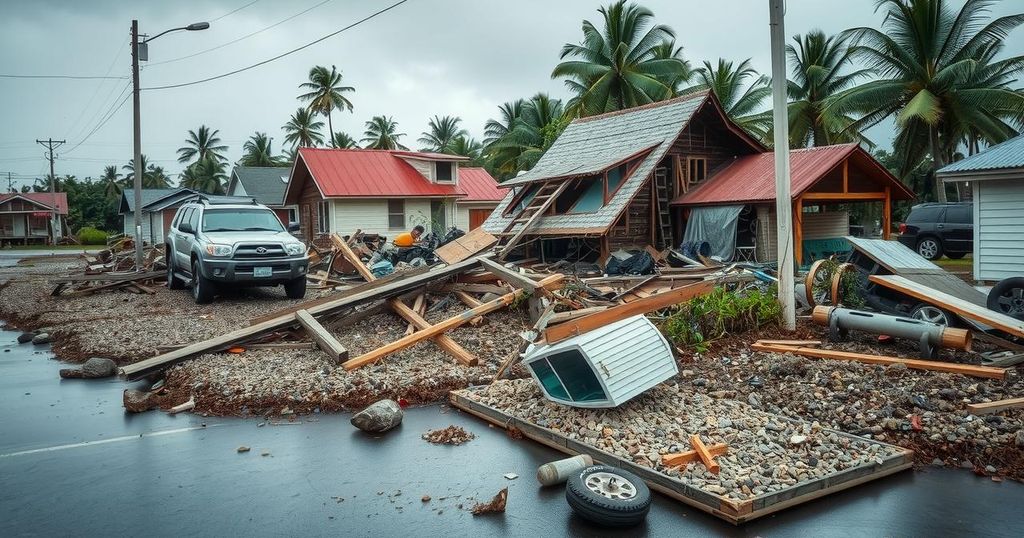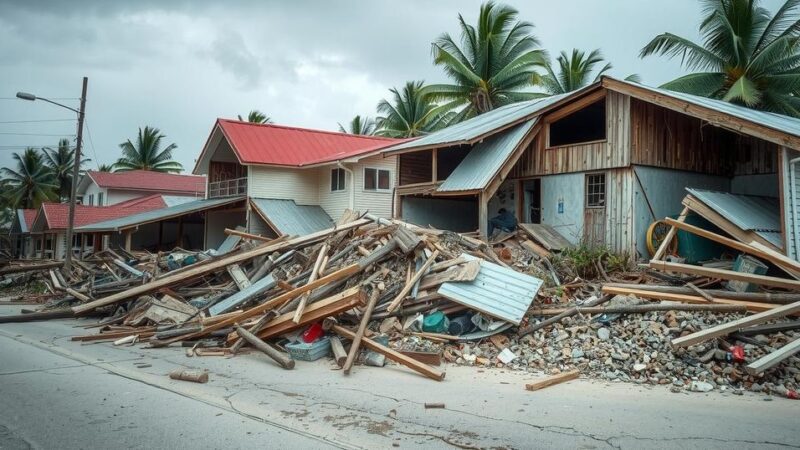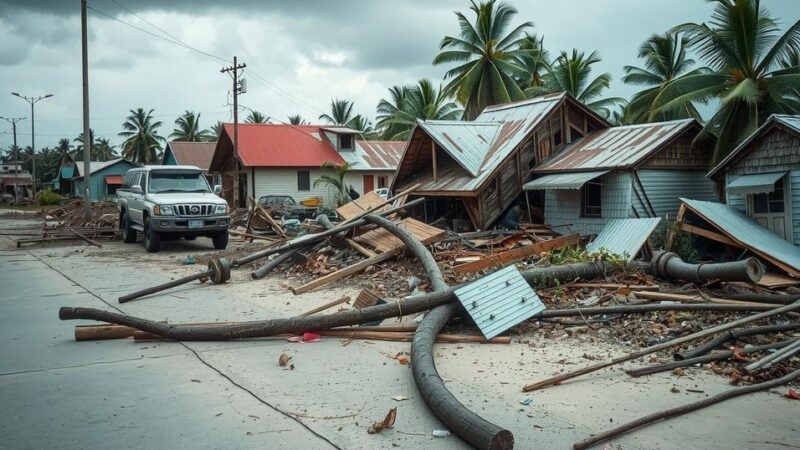Cyclone Chido inflicted severe damage on Mayotte, with reports likening the scene to an atomic bomb explosion. The destruction has raised death toll estimates into the hundreds or thousands. Rescue efforts are complicated by blocked roads and disrupted communications. Mayotte is already one of the poorest regions in the EU, and the cyclone has intensified existing challenges.
On Saturday, Cyclone Chido ravaged the French territory of Mayotte, causing unparalleled destruction reminiscent of an atomic bomb detonation, as reported by residents. The cyclone, categorized as a level 4 storm, unleashed winds exceeding 220 kilometers per hour, marking the most powerful cyclone to strike Mayotte in over 90 years. Reports indicate significant casualties, with the death toll expected to rise and extensive damage to infrastructure, including homes and public services, creating challenges in delivering critical aid and assessing the full impact of the disaster.
Bruno Garcia, owner of Hotel Caribou in Mamoudzou, stated, “We lost everything. The entire hotel is completely destroyed. There is nothing left. It’s as if an atomic bomb fell on Mayotte.” Brief immediate assistance to Mayotte has been complicated by blocked access to roads and disrupted telecommunications, hampering residents’ ability to communicate and search for missing loved ones.
As rescue operations continue, the full extent of the devastation is becoming clearer, prompting concerns about the number of potential victims in slum areas, which are characterized by their vulnerability to such extreme weather events. Mayotte, already facing socio-economic challenges, now contends with widespread loss of life and property.
Cyclone Chido, which struck Mayotte, is noted as the most severe cyclone the region has experienced in nearly a century. The phenomenon of cyclones typically arises from warm ocean waters and moist air, exacerbated by climate change—a factor which scientists suggest is increasing the intensity of such storms. As such, the frequency of these extreme weather events highlights the vulnerabilities faced by regions like Mayotte, which bear the brunt of both natural disasters and socio-economic difficulties. Mayotte is situated in the Indian Ocean and is one of the poorest regions within the European Union, often struggling with high poverty rates and infrastructural challenges, making recovery from such disasters particularly arduous.
In conclusion, Cyclone Chido has wrought devastation in Mayotte, leading to significant loss of life and destruction of property akin to a nuclear disaster. A prompt and coordinated response is essential to support the residents as they face monumental challenges in recovery and rebuilding. This event underscores the severe implications of climate change on vulnerable regions, necessitating greater attention to disaster preparedness and response strategies.
Original Source: www.cnn.com






